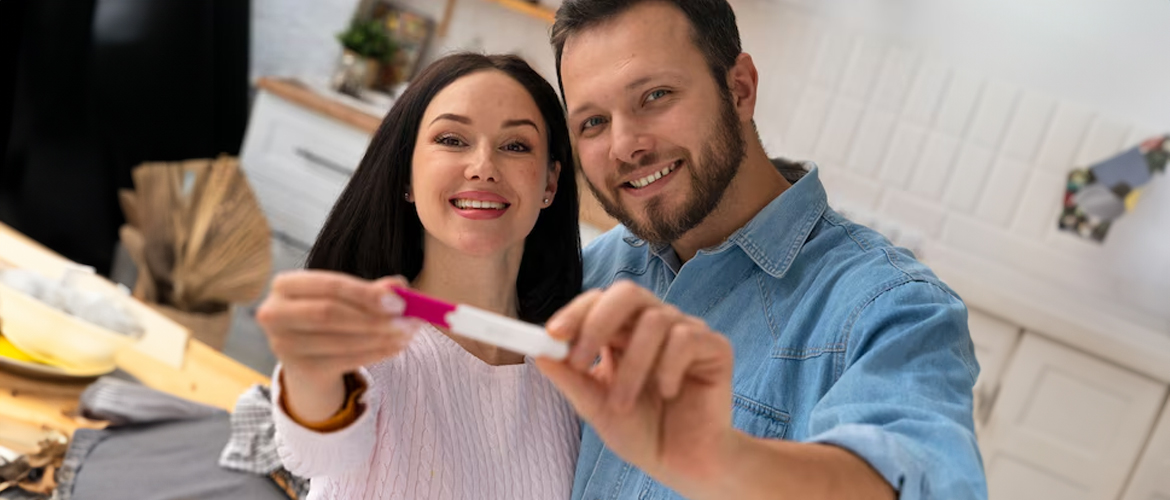The journey to parenthood is an exciting and transformative experience for all. Many couples aspire to conceive quickly and naturally. While nature plays a significant role, understanding your body and making informed choices can significantly increase your chances. This guide provides practical advice and tips on how to get pregnant fast and naturally, all while maintaining a positive and stress-free outlook.
Table of Contents
- Know About Your Menstrual Cycle
- How to Calculate Ovulation Cycle?
- Best Position to Get Pregnant
- What to Eat When Trying to Get Pregnant?
- What to Avoid When Trying to Get Pregnant
- Exercise to Support Your Pregnancy
- When to Consult a Gynaecologist?
Know About Your Menstrual Cycle
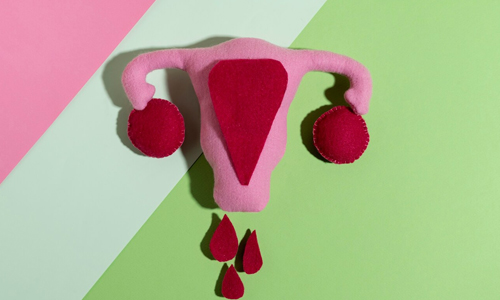
Understanding your menstrual cycle is the first step towards the approach: how to get pregnant fast. Your cycle begins on the first day of your period and ends on the first day of your next period. Typically, your period cycle lasts between 28 to 32 days, but it can vary from woman to woman. By tracking your cycle regularly, you can identify your fertile window and plan accordingly.
How to Calculate Ovulation Cycle?
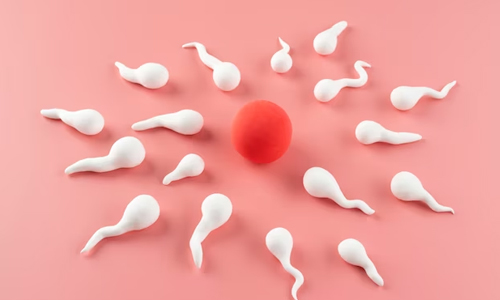
Ovulation is the magical moment in your cycle when an egg is released from your ovary into the fallopian tube, ready to meet a sperm and start a new life. This typically happens around the midpoint of your menstrual cycle. For most women with a 28-day cycle, ovulation occurs around day 14, but this can vary. So, I’ve added some easy and simple ways to calculate your ovulation cycle to get an answer to the question: how to get pregnant fast:
1. Calendar Method
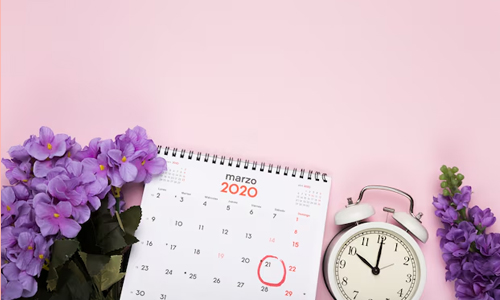
Mark the first day of your period and count forward 14 days; this is typically when ovulation occurs in a 28-day cycle.
2. Bodily Changes
Pay attention to signs such as changes in vaginal discharge (becomes thinner, clearer, and stretchier), mild abdominal pain, and a slight increase in basal body temperature.
3. Ovulation Kits
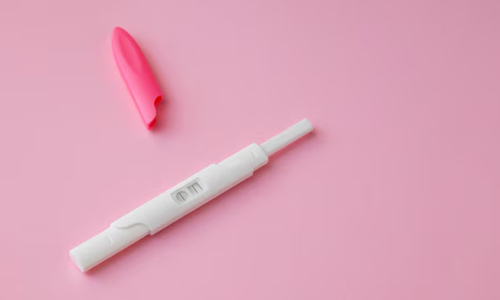
For those with irregular cycles, it is difficult to predict the above bodily symptoms and calendar method. So, they can use ovulation kits that can help detect the surge in interlining hormone (LH) that precedes ovulation aiding in how to get pregnant fast.
Many couples have found success using ovulation kits and calculators to help them conceive.
Here are some heartfelt testimonials from individuals who experienced the joy of pregnancy soon after using these helpful tools
| “After months of trying, we decided to use an ovulation kit and calculator. It was the best decision we made. I got pregnant within the first cycle of using them. They are incredibly reliable and easy to use.”
— Sophia L. “Using the ovulation kit and calculator was a turning point in our journey to conceive. It took the guesswork out of the process, and I got pregnant so quickly. I couldn’t be happier!” — Olivia W. |
By tuning into these signs, you can better understand your body’s rhythms and time of intercourse for the best chance of conception.
How Often Should You Plan?
Always view it as a romantic adventure rather than a mere task. This can make the experience more memorable and intimate. It’s recommended to engage in frequent intercourse every other day during your fertile window. This approach not only enhances the chances of conception but also ensures that sperm is readily available in the fallopian tubes when ovulation occurs.
Best Position to Get Pregnant
While there isn’t scientific evidence to prove that specific positions enhance fertility, some couples find lying on their back with legs raised post-intercourse helpful. This position is thought to potentially aid sperm movement towards the cervix. Avoiding immediate washing and using pillows under your pelvic area can create a conducive environment for sperm to travel toward the egg, maximizing the chances of conception.
What to Eat When Trying to Get Pregnant?
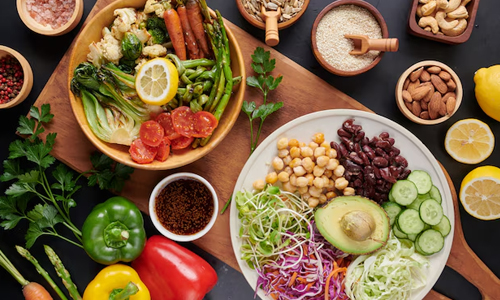
A healthy diet plays a crucial role in boosting fertility and preparing your body for pregnancy. Check the below table to know what to include in your pregnancy diet and why each component matters.
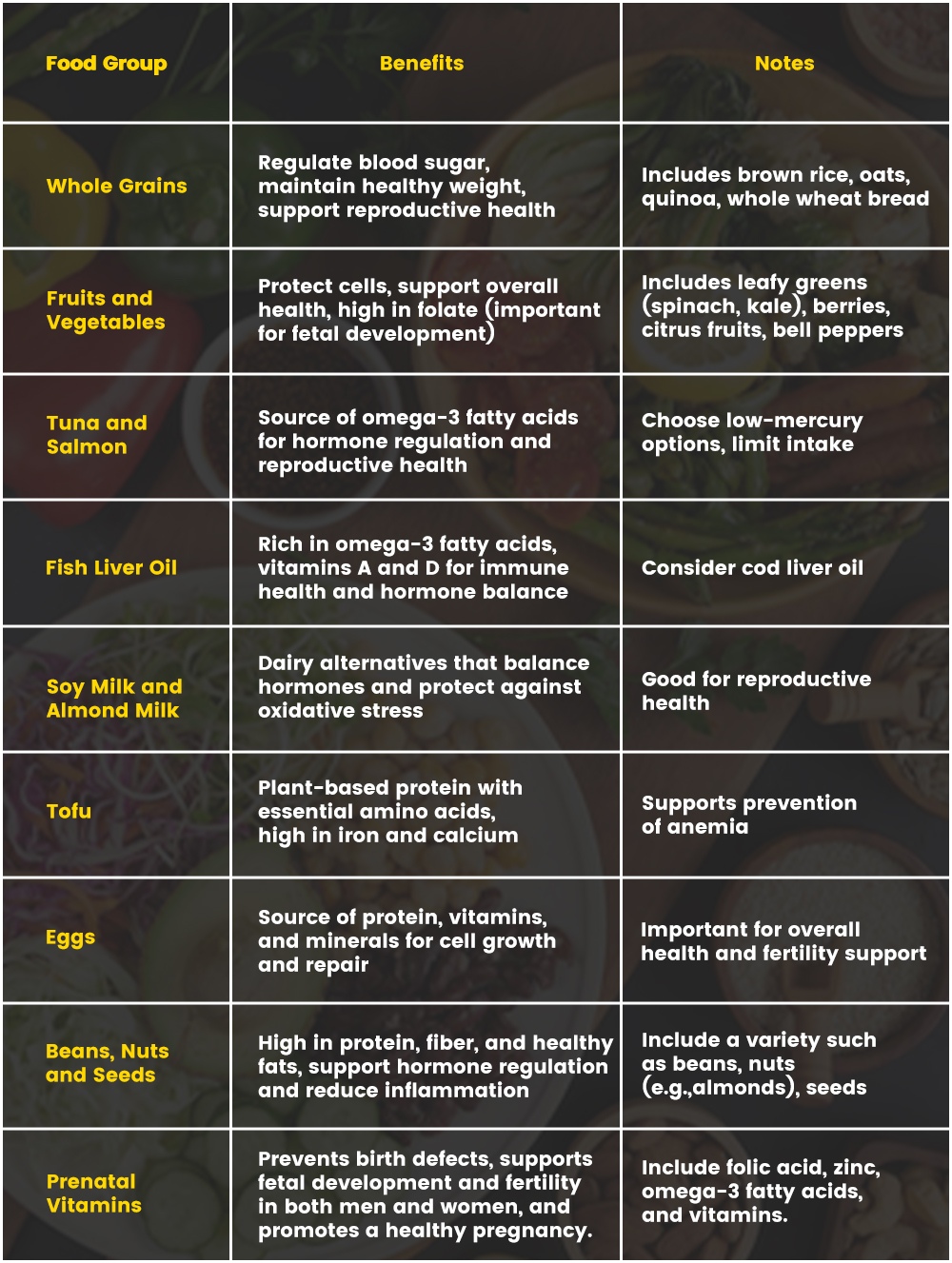
Testimonial: Who successfully conceived by making positive changes to their health
| I focused on eating organic foods, staying hydrated, and reducing stress through yoga. These lifestyle changes helped me conceive naturally after years of trying. I highly recommend this approach.”
— Emily K. By prioritizing whole foods and staying active, I not only felt better but also achieved my dream of becoming a mother. It’s amazing how powerful healthy living can be!” — Mia H. |
What to Avoid When Trying to Get Pregnant

When you’re trying to conceive, certain lifestyle choices can impact your fertility. So, understanding what to avoid for a healthy pregnancy is crucial.
1. Alcohol
Alcohol can interfere with your menstrual cycle and hormone levels, making it harder to predict ovulation and conceive. It can also affect sperm quality in men. So, limiting or avoiding alcohol can improve your chances of getting pregnant and support a healthy pregnancy.
2. Smoking
Smoking has been linked to reduced fertility in both men and women. It can damage the eggs and sperm, affect hormone levels, and increase the risk of miscarriage and birth defects. Quitting smoking can significantly improve your chances of conception and lead to a healthier pregnancy.
3. Caffeine
High caffeine intake has been associated with a longer time to conception and an increased risk of miscarriage. It’s recommended to limit caffeine consumption to less than 200 milligrams per day (about one 12-ounce cup of coffee). Opt for water, herbal teas, or decaffeinated beverages to stay hydrated without the added caffeine.
Exercise to Support Your Pregnancy

Moderate exercise like walking, swimming, and yoga not only supports your overall health but also creates a positive environment for conception by regulating hormones and improving blood flow to reproductive organs. These activities help in reducing stress levels, which is crucial for optimizing fertility. Avoiding high-intensity workouts ensures that your body remains balanced and doesn’t disrupt your menstrual cycle or ovulation.
DE-Stress When Trying
Stress can negatively impact your fertility. So avoid societal and family pressures and engage in activities that help you relax and unwind. Taking time for yourself is crucial—whether it’s enjoying a soothing bath, taking a leisurely walk in nature, curling up with a good book, or spending quality time with your partner. Techniques like meditation, deep breathing exercises, and hobbies can help keep stress levels in check, supporting your journey to conception.
Pre-Conceptional Counselling

Pre-conceptional counseling with a healthcare provider is crucial for those wanting to learn how to get pregnant fast. This is a great opportunity to discuss your health, lifestyle, and any concerns you may have. Your healthcare provider can offer reassurance and tailored recommendations based on your circumstances, ensuring you feel informed and empowered on your journey to conception.
Pre-conceptional counseling can provide invaluable guidance and support for couples trying to conceive.
| “As a couple, we found pre-conceptional counseling to be immensely helpful. It addressed our concerns and provided us with a clear plan. We conceived shortly after and couldn’t be happier with the outcome.”
— Michael and Emma R. |
When to Consult a Gynaecologist?

If you’ve been actively trying to conceive for six months without success, it’s a good idea to reach out to a gynecologist. They specialize in understanding fertility challenges and can offer valuable insights tailored to your unique situation. They’ll likely review your medical history, perform a physical examination, and may order tests to assess your hormone levels, ovarian function, or sperm health and provide you with the right support to enhance your chances of achieving pregnancy. Remember, seeking help doesn’t mean something is wrong—it’s about getting the best possible guidance for your fertility journey.
Together Towards Parenthood
Your journey to parenthood and discovering how to get pregnant fast is a beautiful chapter waiting to unfold. Whether conception happens quickly or takes a little longer, know that you’re not alone in this journey. Many couples experience the ups and downs of trying to conceive. Sometimes, even when everything seems right, nature has its own timeline. So, trust in your body, stay connected with your partner, and continue to support each other through this emotional journey. May your future be filled with love, joy, and the pitter-patter of little feet.
Warm Wishes on Your Journey to Becoming Parents!
FAQ :
1) What is the quickest way to get pregnant fast?
The quickest way to get pregnant is to have regular, unprotected sex during your fertile window, maintain a healthy lifestyle, and track ovulation using ovulation kits.
2) What should I do immediately to get pregnant?
To increase your chances of getting pregnant immediately, track your ovulation, have regular unprotected sex during your fertile window, maintain a healthy lifestyle, and consider taking prenatal vitamins.
3) Which fruit is good to get pregnant fast?
Berries, such as strawberries, blueberries, and raspberries, are excellent for boosting fertility. They are rich in antioxidants, vitamins, and folate, which support reproductive health.
4) How do I make sure my sperm meets my egg?
To ensure sperm meets the egg, have regular unprotected sex during your fertile window, track ovulation, and consider lying down for 15 minutes post-intercourse.
5) Which drink is best for conceiving?
Water is best for conceiving, as it keeps you hydrated and supports overall health. For added benefits, consider drinking smoothies with fertility-boosting fruits and vegetables.
Linda
Related posts
Women Tips
Privacy Overview
| Cookie | Duration | Description |
|---|---|---|
| cookielawinfo-checkbox-analytics | 11 months | This cookie is set by GDPR Cookie Consent plugin. The cookie is used to store the user consent for the cookies in the category "Analytics". |
| cookielawinfo-checkbox-functional | 11 months | The cookie is set by GDPR cookie consent to record the user consent for the cookies in the category "Functional". |
| cookielawinfo-checkbox-necessary | 11 months | This cookie is set by GDPR Cookie Consent plugin. The cookies is used to store the user consent for the cookies in the category "Necessary". |
| cookielawinfo-checkbox-others | 11 months | This cookie is set by GDPR Cookie Consent plugin. The cookie is used to store the user consent for the cookies in the category "Other. |
| cookielawinfo-checkbox-performance | 11 months | This cookie is set by GDPR Cookie Consent plugin. The cookie is used to store the user consent for the cookies in the category "Performance". |
| viewed_cookie_policy | 11 months | The cookie is set by the GDPR Cookie Consent plugin and is used to store whether or not user has consented to the use of cookies. It does not store any personal data. |

